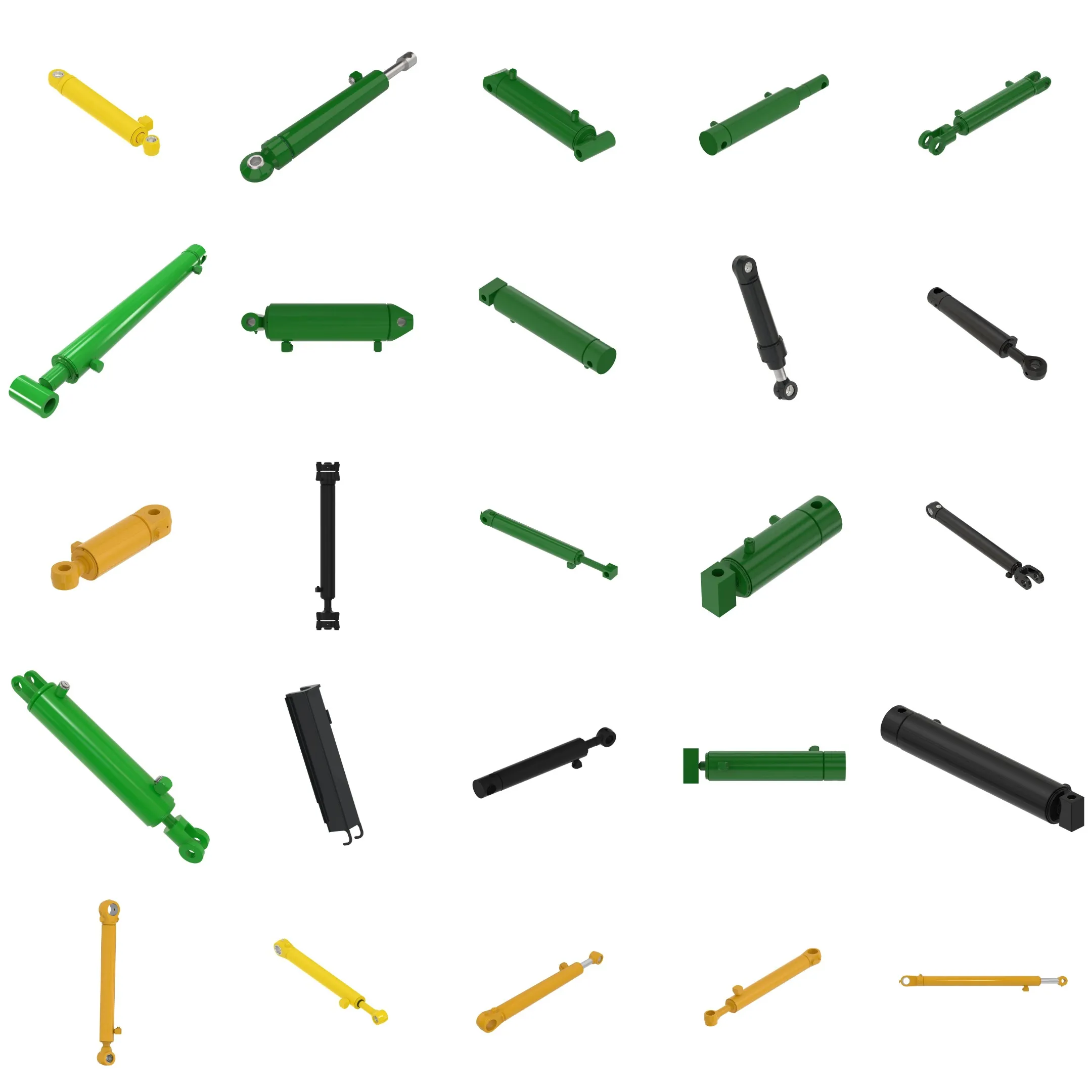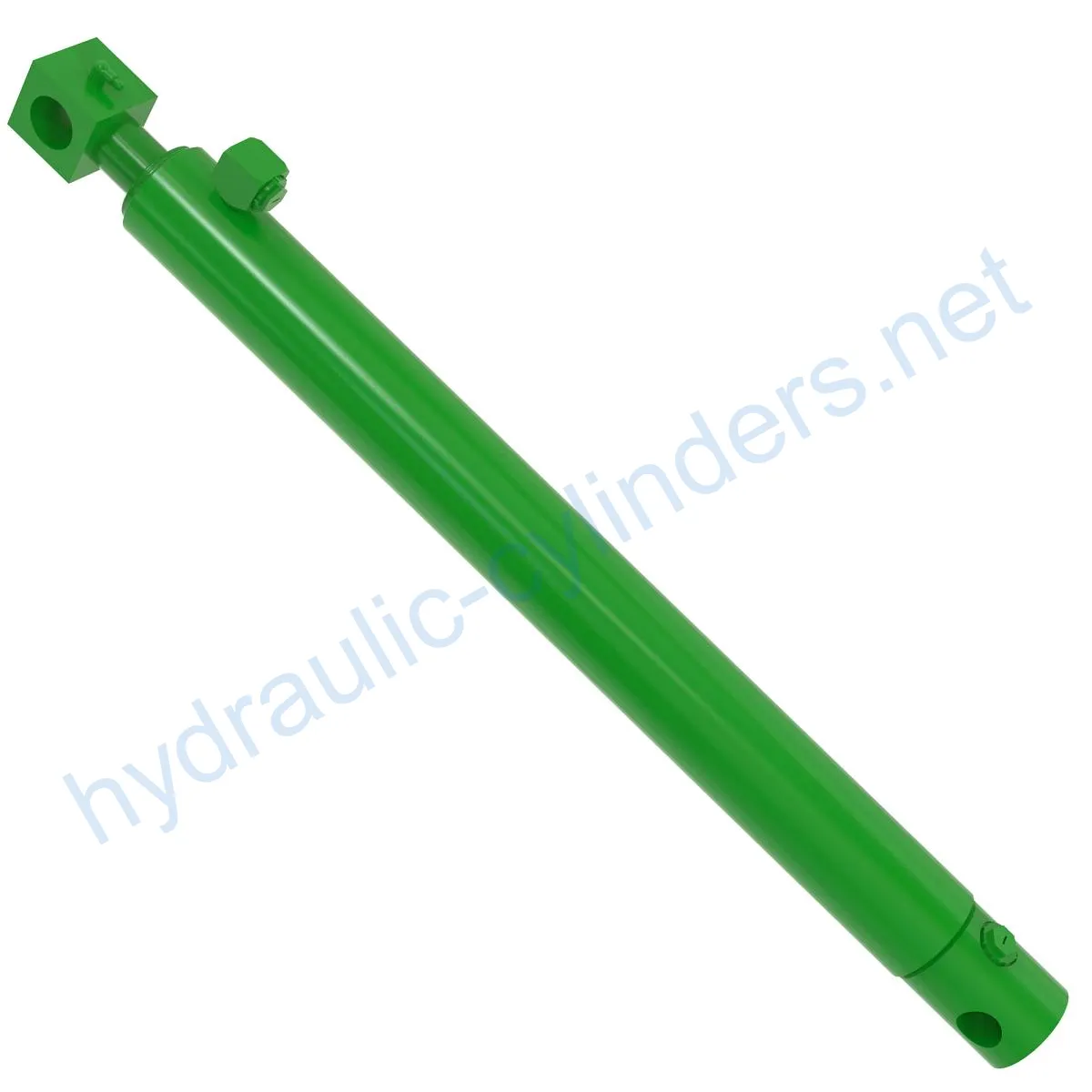Replacement Of AH211263 Bucket Hydraulic Cylinder
유압 실린더 제조업체, 공급 업체 및 기계 제품 수출 업체 중 하나로서 유압 실린더 및 기타 여러 제품을 제공합니다.
자세한 내용은 당사에 문의해 주세요.
메일:sales@hydraulic-cylinders.net
유압 실린더 제조업체 공급 업체 수출.
Replacement Of AH211263 Bucket Hydraulic Cylinder
Introduction
The Replacement Of AH211263 Bucket Hydraulic Cylinder is a crucial component in various machinery, designed to provide hydraulic power for lifting, pushing, and moving heavy loads. With a weight of 41 lb, height of 3 in, width of 4.5 in, and length of 36 in, this hydraulic cylinder is compatible with the 620, 640, 720, and 725 models.
Specifications and Compatibility
The Replacement Of AH211263 Bucket Hydraulic Cylinder has the following specifications:
- Weight: 41 lb
- Height: 3 in
- Width: 4.5 in
- Length: 36 in
It is compatible with the following machine models: 620, 640, 720, and 725.
Key Features
-
Improved Equipment Performance
Replacing a damaged or worn hydraulic cylinder can restore the normal operation capability of the equipment, ensuring optimal performance in various applications.
-
Enhanced Safety
Regularly replacing hydraulic cylinders reduces the safety hazards caused by cylinder failures, ensuring the safety of both operators and equipment.
-
Overload Protection
New cylinder designs often incorporate better overload protection mechanisms, improving overall safety.
-
Quick Installation
Modern hydraulic cylinders are designed with easy installation and replacement in mind, reducing downtime and ensuring swift installation.
-
Standardized Components
Many hydraulic cylinders are standardized products, making it easy to obtain replacement parts from the market.
Applications
-
Excavators
In excavators, the hydraulic cylinders in the boom or bucket may become damaged due to prolonged use or overload, requiring replacement to restore normal operation.
-
Cranes
The hydraulic cylinders in crane boom arms are prone to wear and tear during frequent lifting and lowering processes, necessitating regular replacement to ensure safety.
-
Tractors
The front-end loader hydraulic cylinders in tractors may experience leaks or performance degradation due to continuous lifting and tilting operations, requiring replacement.
-
Harvesters
During the harvesting process, hydraulic systems endure high pressures, and cylinders may suffer fatigue, necessitating timely replacement to maintain work efficiency.
-
Automated Production Lines
Hydraulic cylinders are used to control robotic arms and other automated equipment. Cylinder failures can significantly impact production efficiency and should be promptly replaced.
-
Die Casting Machines
In high-pressure and high-temperature environments, hydraulic cylinders in die casting machines may experience performance degradation. Regular replacement ensures product quality.
-
Mining Equipment
Hydraulic cylinders are used for lifting and moving heavy loads in mining equipment. Due to harsh working conditions, regular inspection and replacement are necessary to avoid equipment failures.
-
Bulldozers
Wear of hydraulic cylinders in bulldozer blades can result in reduced pushing capacity, requiring timely replacement to maintain operational efficiency.

Maintenance Tasks
-
Regular Inspection
Periodically inspect the hydraulic cylinder for any signs of damage or wear. Identify any potential issues early to prevent further damage and ensure optimal performance.
-
Proper Lubrication
Ensure the hydraulic cylinder is adequately lubricated to minimize friction and prolong its lifespan. Use appropriate lubricants according to manufacturer recommendations.
-
Seal Replacement and Calibration Check
Regularly replace worn seals to maintain proper hydraulic sealing. Additionally, periodically calibrate the cylinder to ensure accurate operation.
Safety Considerations and Environmental Factors
When using hydraulic cylinders, it is crucial to prioritize safety measures. Adhering to safety protocols and guidelines is essential to prevent accidents and injuries. Additionally, considering the environmental impact of hydraulic cylinders is important for sustainable operations.
Troubleshooting and Common Issues
-
Leakage
One common issue with hydraulic cylinders is leakage. This can be caused by worn seals or damaged components. To troubleshoot, inspect the cylinder for any signs of leakage and replace faulty parts accordingly.
-
Poor Performance
If the hydraulic cylinder is not operating optimally, it may result in poor performance. Potential causes include insufficient lubrication, misalignment, or worn-out components. Carefully inspect the cylinder and address the issue accordingly.
-
Inconsistent Operation
Inconsistent operation can be caused by various factors, such as air in the system, faulty valves, or incorrect pressure settings. Thoroughly inspect the cylinder and associated components to identify the cause and take appropriate corrective measures.

Design Considerations and Selection Standards
When selecting a hydraulic cylinder, several factors should be considered:
-
Load-Bearing Capacity
The hydraulic cylinder must have the required load-bearing capacity to handle the intended workload safely and efficiently.
-
Sealing Efficiency
Effective seals are essential to prevent leakage and maintain optimal hydraulic system performance. High-quality seals, such as piston seals and rod seals made from durable materials like polyurethane and nitrile rubber, should be used.
-
Durability
The cylinder body and threaded ends should undergo precise processing to improve wear resistance and increase durability.
-
Safety Considerations
Hydraulic cylinders should be designed with safety features to prevent accidents caused by overload or system failures.
-
Maintainability
Consideration should be given to the ease of maintenance, including accessibility for inspection, repair, and replacement of components.
Sealing and Lubrication
Hydraulic cylinders should utilize various sealing components, such as piston seals and rod seals, made from wear-resistant materials. The cylinder body and threaded ends should also undergo precise processing to improve wear resistance. Regularly lubricating the hydraulic cylinder with the appropriate amount of hydraulic oil is essential for proper operation.
Regular Inspection and Preventive Maintenance
Take a Tour of Our VR Factory:
Take a tour of our VR factory with the following
Hydraulic Cylinder Application:


